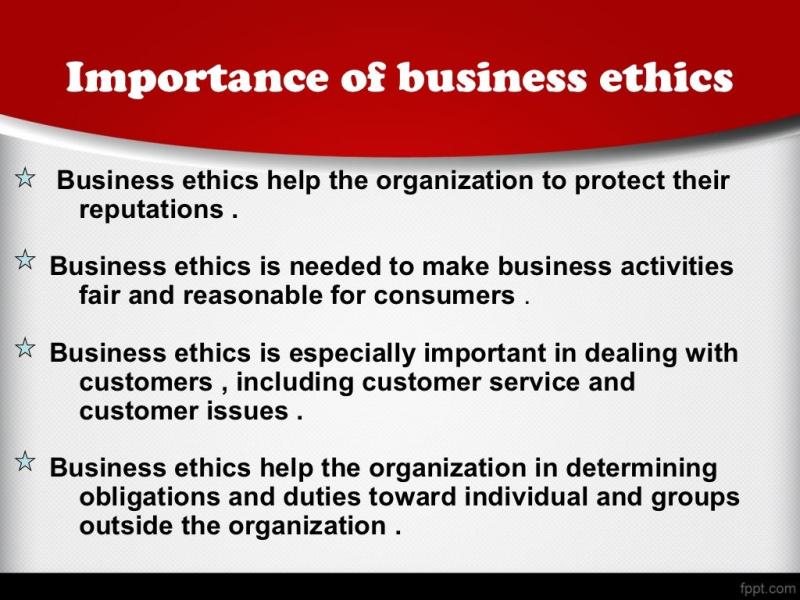What is business ethics training?
Business ethics training refers to programs, courses, or initiatives designed to educate individuals within an organization about ethical principles, values, and standards that guide responsible and ethical behavior in business contexts. These training programs aim to foster a culture of integrity, transparency, and ethical decision-making among employees, leaders, and stakeholders.
Key components of business ethics training include:
Ethical Standards: Defining and communicating the organization's ethical standards, values, and code of conduct that align with legal regulations and industry best practices.
Case Studies and Scenarios: Presenting real-life case studies, scenarios, or ethical dilemmas relevant to the industry or organization to facilitate discussions and critical thinking about ethical decision-making.
Ethical Leadership: Emphasizing the role of leadership in setting an ethical tone and promoting ethical behavior throughout the organization. Leaders often undergo specialized training on ethical leadership.
Ethics Policies and Procedures: Educating employees about specific company policies, procedures, and protocols related to ethical behavior, conflicts of interest, whistleblowing, and reporting mechanisms.
Compliance Training: Providing training on legal and regulatory requirements specific to the industry to ensure employees understand and comply with ethical and legal standards.
Interactive Training Formats: Using interactive formats such as workshops, seminars, role-playing, online courses, or training modules to engage employees actively in discussions and learning about ethics.
Ethics in Decision-Making: Equipping employees with frameworks, tools, and decision-making models to analyze ethical dilemmas, make ethical decisions, and resolve conflicts ethically.
Promoting Ethical Culture: Encouraging a culture where ethical behavior is valued, recognized, and reinforced through regular communication, incentives, and acknowledgment of ethical conduct.
Continuous Learning: Providing ongoing and periodic training sessions to keep employees updated on evolving ethical issues, industry changes, and reinforcing ethical principles.
Evaluation and Feedback: Assessing the effectiveness of ethics training through feedback, surveys, and evaluations to continuously improve the training programs.
Business ethics training is essential in promoting a positive work environment, reducing ethical risks, enhancing corporate reputation, and building trust among stakeholders. By educating employees about ethical responsibilities and fostering an ethical culture, organizations aim to mitigate ethical dilemmas and ensure ethical conduct in all business activities.
What does business ethics training usually entail and how is it conducted?
Business ethics training encompasses a range of approaches to equip individuals with the knowledge, skills, and values necessary to make ethical decisions within a business context. The specific content and methods can vary depending on the organization, industry, and target audience. Here's a breakdown of what you might encounter:
Content:
- Foundational concepts: Exploring core ethical principles like honesty, fairness, justice, and respect for human dignity.
- Business-specific applications: Case studies and scenarios analyzing ethical dilemmas in areas like marketing, finance, human resources, and corporate social responsibility.
- Legal and regulatory framework: Understanding relevant laws and regulations that govern business conduct.
- Decision-making frameworks: Applying ethical decision-making models to analyze and resolve dilemmas.
- Communication and reporting skills: Learning how to effectively communicate ethical concerns and report misconduct.
Training methods:
- Traditional classroom sessions: Interactive lectures, workshops, and group discussions facilitated by an expert trainer.
- E-learning modules: Online courses and interactive simulations offering flexibility and accessibility.
- Role-playing and simulations: Engaging in realistic scenarios to practice ethical decision-making in a safe environment.
- Case study analysis: Discussing and analyzing real-world examples of ethical challenges faced by businesses.
- Guest speakers and panel discussions: Hearing perspectives from industry professionals and experts.
Additional elements:
- Code of ethics: Training may be linked to an organizational code of ethics outlining expected behaviors and values.
- Whistleblower programs: Creating safe avenues for employees to report unethical conduct.
- Ongoing reinforcement: Integrating ethical considerations into regular performance evaluations and feedback discussions.
Effectiveness of Business Ethics Training:
The effectiveness of business ethics training depends on several factors, including the quality of the program, the level of engagement of participants, and the organizational culture. However, successful training can lead to:
- Increased ethical awareness and decision-making skills.
- Reduced risk of legal and ethical problems.
- Improved corporate reputation and stakeholder trust.
- More positive workplace culture and employee morale.
Overall, business ethics training plays a crucial role in fostering ethical conduct within organizations and promoting responsible business practices in today's complex world.












